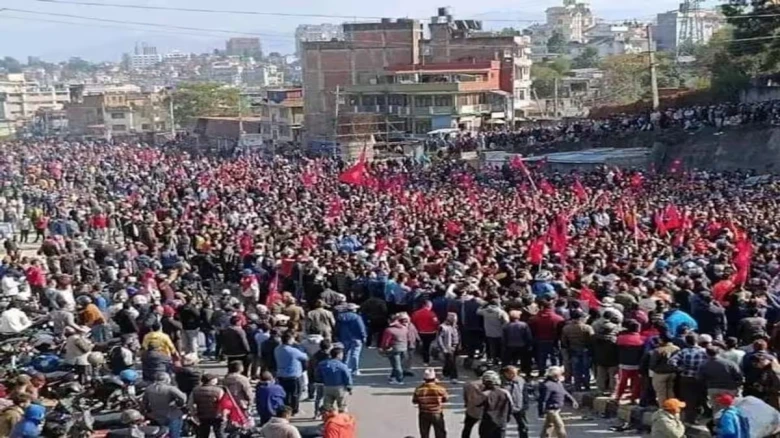Regional
His legacy reminds us of the importance of self-reliance, courage,...

Tens of thousands of supporters of Nepal's former king flooded the streets of the Kathmandu Valley...
Digital Desk: Tens of thousands of supporters of Nepal's former king flooded the streets of the Kathmandu Valley, demanding the restoration of the monarchy and the re-establishment of Nepal as a Hindu kingdom. Led by businessman Durga Prasai, this demonstration echoes the historic People’s Movement in 2006, which resulted in the abolition of the monarchy on May 28, 2008, and the declaration of Nepal as a federal democratic republic.
This marks the first large-scale protest of its kind since the transformative events of 2006. Durga Prasai's movement has ignited concerns about a potential regime change, seeking to reinstate the monarchy and revert Nepal to its status as a Hindu kingdom. The monarchy, which spanned 240 years, was abolished over 15 years ago during the People’s Movement, a 19-day uprising that resulted in a nationwide curfew.
Police authorities are expressing apprehension about the potential threat posed by Durga Prasai's campaign to the elected government, fearing it could lead to the destabilization of the current political order. The protesters, brandishing the national flag and chanting slogans in support of former King Gyanendra Shah, gathered in Balkhu after a prohibitory order was imposed in key areas of Kathmandu.
Demonstrators fervently expressed their demands, chanting, “We need our King, we need our Hindu Kingdom.” Tensions escalated when clashes erupted between members of the CPN-UML’s youth wing and Prasai's supporters in Balkhu. Security forces intervened, using batons and tear gas to disperse the protesters, resulting in injuries on both sides, including two police officers.
The impact of the protest extended beyond the streets, causing disruptions in schools and colleges in Kathmandu, affecting business activities and the movement of people. The National Human Rights Commission issued an appeal to the protesters, urging them to be sensitive and respect the rights of others during their demonstrations.
These unfolding events underscore the complexity of Nepal's political landscape, with potential implications for the current democratic framework established in the aftermath of the People’s Movement in 2006. As the nation grapples with this renewed call for monarchy and a Hindu kingdom, observers are keenly watching how these developments will shape the future of Nepal's political identity.
Leave A Comment